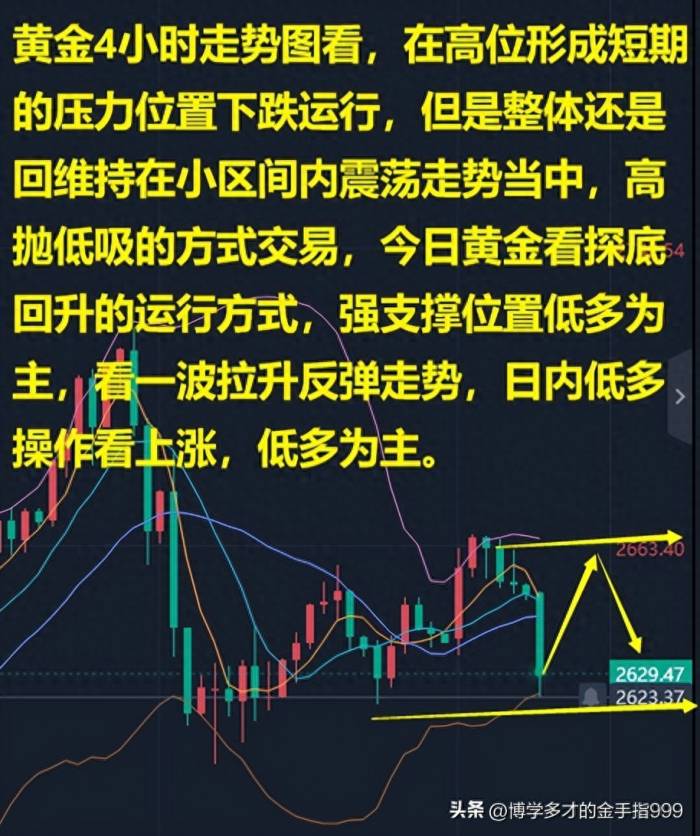In recent times, the Chinese government, through its cyberspace administration and various departments, has launched an initiative dubbed “Clear and Bright: Governance of Typical Issues in Algorithm-Based Recommendations on Online Platforms.” The cornerstone of this initiative is addressing the pervasive issue of “information cocoons.” In today’s digital landscape, where platforms have emerged as our primary sources of information, unraveling the economic implications and governance challenges of these information cocoons is crucial for enhancing the effectiveness of platform governance.The Role of Platforms in Information DisseminationDuring the digital economic era, one of the most significant transformations in our informational environment is the rise of platforms as the leading providers of information. People now frequently turn to various platforms to meet their informational needs. For example, when faced with a question, many opt to search it on Baidu; during leisure, they might browse their friends' posts on WeChat or shop at online retail giants like Taobao and JD.com. A striking illustration of this shift can be seen in the rise of digital reading in China, which surpassed traditional print reading methods as early as 2015, with approximately 64% of the population engaging in digital reading.As platforms distribute information, the volume of surrounding data increases, often leading individuals to confront an overwhelming amount of information—a phenomenon known as information overload. Given our finite time and limited cognitive capacities, coupled with the varying quality of information, the advent of personalized information recommendations aligns well with economic principles. This occurs when there are market demands, prompting suppliers to emerge with solutions tailored to meet those needs.From this angle, information push services are forms of specialized offerings from the platforms, reflecting positive market potential. Generally speaking, these algorithms enable platforms to deliver crucial information to consumers, merchants, and producers at minimal costs, thus enhancing market efficiency, resource allocation, and the resilience of supply chains. Furthermore, these services have shifted from being labor-intensive to technology and knowledge-intensive, significantly increasing their value-added services and stimulating the development of high-end services.Today, information pushing is omnipresent. Platforms gather vast amounts of data based on users' identities, ages, personalities, interests, and purchasing histories to create profiles. Some platforms even scrutinize users' facial expressions or monitor their conversations to optimize their targeted information delivery.In addition, information delivery practices possess inherently validating and guarantee characteristics. Platforms curate authentic and reliable information, presenting it to specific consumers in accordance with their preferences. Consequently, in a well-functioning platform environment, users tend to develop a degree of trust and reliance on the information pushed at them. For instance, some individuals may prioritize restaurants on Meituan’s "Must-Try List" or choose to stay exclusively at Ctrip's premium hotels based on its recommendations.However, a noteworthy trend is the increasing tendency of users to delegate their purchasing decisions to the platforms. As platforms amass data, especially detailed, multidimensional information about individual users, their recommendations become more precise, leading some users to unconsciously relinquish their autonomy of choice. For instance, users may watch whatever short videos are pushed to them without considering alternatives or even become excessively absorbed in the content.The Emergence of Information CocoonsWhile information pushing enables individuals to access relevant information effectively and discern authentic sources, its adverse effects are becoming increasingly apparent, with information cocoons standing out as a significant concern.To encapsulate, an information cocoon restricts users’ exposure to a comprehensive range of information. Specifically, two layers define the concept of information cocoons: first, platforms may selectively show users only the information they desire for engagement or advertising purposes.This concept aligns closely with the ideas posed by American scholar Cass Sunstein in his 2006 publication, “Republic.com,” which suggests that individuals tend to curate their informational environments based on their interests, thereby trapping themselves within a “cocoon” or confined space. This interpretation places responsibility on the users themselves, alleging that they actively choose to narrow and enclose their information needs and choices, with platforms merely amplifying these tendencies.The second layer originates from more commercial intents, wherein platforms curate information to serve their own interests. This infusion of “platform intent” constitutes a deliberate design by the platforms to shape the information users encounter.From a game theory perspective, such practices may be viewed as a form of strategic advantage over users. In traditional game theory models, individuals make strategic choices based on provided information (whether symmetric or asymmetric) to reach equilibria. In the current context, however, the game parameters are set by the platform, allowing them to predict and optimize outcomes for their own benefit, effectively controlling the user experience. Thus, platforms become gatekeepers, iterating choices favoring their economic maximization at the cost of authentic user agency.Examining the interplay between these two layers further elucidates the dynamics: the first element serves to attract users and expand audience reach, while the latter underpins the ultimate objective of converting traffic into tangible revenue through transactional activities.In theory, if platforms maintained neutrality and pursued broader societal well-being, information pushing would not culminate in detrimental information cocoons, potentially offering a benign influence. However, platforms function independently as profit-driven enterprises, consequently, the economic ramifications may lead to discriminatory practices based on information monopolies.Research indicates that when vendors engage in discriminatory practices by presenting differential information to various consumer segments, this can give rise to opportunistic pricing strategies, ultimately detracting from overall social welfare. Moreover, studies contrasting online and offline shopping carts reveal that online shopping tends to involve a narrower range of product categories, supporting claims that platform information strategies foster more rigid consumer behavior, leading to greater predictability rather than diversity in purchasing.Indeed, while platforms exercise microeconomic directives within market structures distinct from those of planned economies, the potential for high levels of control means that the economic signals carried by micro-information can steer the efforts of market participants towards achieving platform objectives, thus giving rise to a new economic order predominantly directed by profit maximization.On a societal level, information cocoons might exacerbate divisive opinions and societal stratification. Given that individuals within different demographics are exposed to tailored information streams that are perpetuated by algorithmic reinforcement of their established beliefs, diverse viewpoints and a broader understanding of reality become unattainable. Over time, this could foster persistent societal friction and a pervasive inability to distinguish truth from falsehood.Nevertheless, information cocoons also facilitate the formation of “social bonds,” wherein similarly-minded groups congregate in the isolated informational landscapes developed around shared interests or topics. Despite this, there exists an inherent divide among these groups, often culminating in contradictory perceptions on contentious issues.French economist Cédric Durand, in his book “Technological Feudalism,” asserts that platforms have evolved into new organizational structures in society, exerting control over aspects of our lives through digital means—be it managing the labor processes of delivery personnel or regulating social interactions. Algorithms predict behaviors and outcomes, thus diminishing individuals' capacity for self-reflection and effectively curtailing their ability to challenge the existing state of affairs, leading to what Durand refers to as “automated social control.” In this way, every interaction contributes to data that feeds back into the algorithms, perpetuating this cycle of manipulation that undermines genuine socialization.Proposed RecommendationsCan we rely on market forces or platform self-regulation to mitigate the issue of information cocoons? At the current stage, it is apparent that tangible problems have emerged, stirring public concern. Consequently, it is essential to advocate for a regulatory perspective that optimizes policy design, facilitating high-quality information delivery while mitigating the risks associated with cookie-cutter recommendations.First, enhance the fairness of information disclosure by platforms. User experiences can differ significantly based on platform strategies; thus, regulations must mandate that information distribution by platforms is impartial and devoid of discriminatory motives. Any practices whereby platforms leverage informational advantages to create asymmetries—such as preferential information exposure to select merchants or consumers—should be rigorously scrutinized. In addition, users should access consistent information about products, unaltered by commercial influences to obscure essential data, thereby enhancing transparency and integrity in information dissemination.Second, encourage platforms to furnish balanced and diverse information. It is critical that algorithms refrain from redundantly presenting similar content; platforms should strive to create a mix of informative and even contrasting content alongside typical recommendations to enrich user experiences. Implementing systems that allow users to express disinterest or indicate an overload of similar content can foster broader exposures while promoting better cognitive diversity among users. Additionally, applying stricter algorithmic guidelines for vulnerable demographics, such as children and the elderly, should be emphasized to minimize the risk of inducing addictive behaviors. Active platform governance is necessary to monitor and address misinformation disseminated by users or malicious actors.Third, emphasize the importance of high-quality content. When technology is monopolized by an entity, it risks losing its core value propositions. Advocating for a “positive technology” approach is imperative, which includes curtailing the dissemination of low-quality or deceptive content while protecting online safety. Platforms should undertake social responsibilities, offering creators of quality content more support and visibility—essentially promoting enriching user experiences that contribute to a more vibrant digital ecosystem.
The Economic Value and Governance of Information Silos
📅
Published
Related Articles

Accelerated Inflow of Long-term Capital
Aug-29, 2024


Tariffs Never Sleep
Jul-28, 2024

Weilai Loses, BYD Gains, Tesla Profits Big!
Aug-04, 2024

Is the Era of Large Models Reaching a Turning Point?
Sep-23, 2024

Factors Behind America's Strong Consumer Spending
Sep-30, 2024



Gold and Silver: Bottoming Out for a Bullish Trend
Sep-13, 2024

NFP Boom: Dollar Hurdled, 50 bps Near
Nov-15, 2024

Leaders of A-Shares Dual Listing in Hong Kong
Jul-27, 2024

Is White Sugar More Sensational Than Gold Prices?
Sep-18, 2024

Trillion-Dollar Stimulus on the Horizon?
Nov-05, 2024

High Prices Do Not Equal Spring
Jul-27, 2024

OpenAI's Shift to Profit-Driven Ventures
Sep-15, 2024

Did the US raise interest rates from 5.25% to 5.5%?
Oct-11, 2024

A-Shares Update: 13 Trillion Yuan Stimulus Unveiled
Oct-19, 2024

Tesla on the Edge of a Cliff
Aug-13, 2024

When Will SMIC Break Free from Its Curse?
Aug-31, 2024



Nvidia Surpasses Apple's Market Value
Oct-05, 2024

Foreign Funds Amass $170B: A-Shares to Surge?
Oct-26, 2024

BYD Shocks the World with Major Announcement
Jul-28, 2024



Ten Traits of Great Investors
Jul-12, 2024

Semiconductor "Demon King" Sees $156.5 Billion Surge
Aug-03, 2024


Pre-Market Snapshot: Global Headlines
Jul-25, 2024